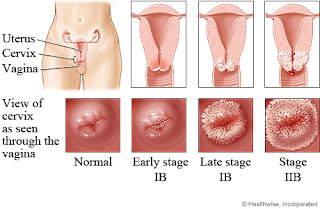This morning I went to Sarawak Family Planning to take HPV vaccination injection. The dose is available now, to who interested to take the doses can call to this number to make appointment 085-413440. Have to take 3 doses, it is important to complete all 3 doses within the scheduled time to help ensure maximal benefits of the vaccines are received. HPV vaccination injection was taken to help HPV infection and reduce risk of cervical cancer, vaginal cancer, vulvar cancer and genital warts in women. Now it is available to help genital warts in men too. It is important to note that women who have already been vaccinated still need to go for regular Pap smear screening.
Human papillomavirus (HPV) is the virus that causes cervical cancer in women and genital warts in men and women. HPV the virus that can cause cervical cancer, vulvar cancer, vaginal cancer and genital warts.
People who have HPV infection may not show any signs or symptoms, so they can get the virus or pass it on to their partner without even knowing it. There's no way to predict who will or won't clear the virus by the body immune system. For most, the body's immune system will clear the virus on its own. However, when it doesn't, HPV infection can lead to diseases. Diseases caused by HPV cervical cancer,vulvar cancer,vaginal cancer and genital warts.
Cervical cancer is abnormal cell growth in the lining of the cervix. About half of all women diagnosed with cervical cancer are between 35 and 55 years old. Many of these women were most likely exposed to cancer -causing HPV types during their teens and 20s.
Genital warts (condyloma acuminata) are also known as "cauliflowe-like" growths. They are moist, soft and typically skin-colored, and can develop in the genital area in men and women within weeks or months after HPV infection. Treatment for genital warts can involve removing, freezing, or burning the warts. Even after treatment, genital warts can recur.
There are several ways that people can lower their chances of getting HPV infection:
- Abstinence from all sexual activities.
- Maintain a monogamous relationship with someone who has no other or few sex partners.
- Limit the number of sexual partners.
- Condom may help reduce the risk of HPV but is not fully protective against infection.
- Regular Pap smear screening.



No comments:
Post a Comment